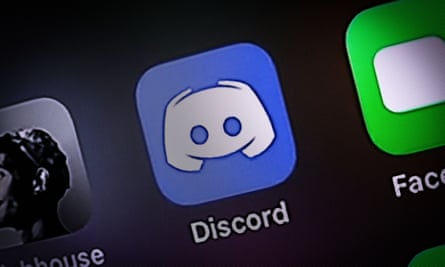When Kanye West was putting the finishing touches to his new album Donda, he was not content to trust only the ears of a few close confidants for feedback.
The rapper and producer held a series of listening events in stadiums around the US, taking up residence in the locker room of the Mercedes-Benz Stadium in Atlanta, Georgia, to finish the album with the producer, Mike Dean, after playing it live to an audience of thousands. And then, when that was not enough, Dean turned to another group of Kanye superfans: the collective minds of the Discord community WestServerEver.
Dean made an account on the service and posted three early versions of the track Hurricane. Asking the fans which version they preferred, the conclusion was all but unanimous, with almost 90% opting for a version with slight tweaks from the original.
Despite the name, Discord has little to do with the music industry. Originally created as a tool for PC gamers to talk during multiplayer games, the service has grown to become a shadow social network for generation Z, rivalling Twitter for users and making its mark on culture and society.
For those who are not terminally online, Discord resembles a corporate chat app like Slack or Microsoft Teams if their user experience had been crafted by an extremely overcaffeinated 17-year-old Counter-Strike player. Users can create and join servers, interest-focused communities organised around a particular topic, and chat with voice or text with those around them.

“So basically, the way Discord seems to work right now, is that for every single interest that exists, there is a Discord server,” says Ryan Broderick, an internet culture reporter and moderator of two Discord servers based around his newsletter Garbage Day.
“For instance, I’m in the Hot Topic Discord server,” for the American clothing brand of that name, “which is just about anime, which is weird. Mountain Dew [a US soft drink] has an official Discord server that’s actually pretty good, I’m in that one too. During the depths of the pandemic I got very bored, and I joined several hyperpop Discords for kids who are making techno music. Almost the way 4chan used to be the home base of web culture, say, 10 years ago, I see that as Discord now.”
The interest-focused makeup of Discord lends it a completely different air from previous online communities, though. Without the existence of a single, shared feed, or the ability for content to go “viral” in any structured way, it is perfect for people who want the freedom to indulge their weirdness in a safe way. “I’ve noticed that like the people who tend to be using them are there because they’re sick of what’s happening on places like Twitter,” Broderick adds.
Without a centralised feed, Discord – like Facebook groups, or insular subreddits on the social news site – can also be a haven for weirdness of a less palatable sort. In 2018, the site purged a number of far-right communities from its servers, including Atomwaffen Division, Nordic Resistance Movement, and Iron March. But the communities filtered back, and last month, the Institute for Strategic Dialogue warned that “Discord could act as an entry point for children to come into contact with extremist ideology”. Across 24 extreme rightwing servers the thinktank identified, they found the service “primarily acts as a hub for extreme rightwing socialising and community building”.
Discord, for its part, says its terms of service “specifically prohibit harassment, threatening messages, or calls to violence” and that the company “investigates and takes immediate appropriate action against any reported ToS [terms of service] violation by a server or user.”
The company is gathering the resources required to take that sort of action seriously. After topping 300 million registered users last year, it rebuffed acquisition attempts from Microsoft and Sony and instead raised $100m at a valuation as high as $7bn. “We are humbled and honoured by the growth we’ve seen among so many incredible and diverse communities that have made Discord their place to hang out,” its chief executive, Jason Citron, said in a statement.
As for WestServerEver, Hurricane would go on to be Donda’s lead single and the fifth track on the sprawling 27-song, 108-minute album – and the Discord-favourite version is the one that made it on to the album.
